A friend of mine called me on the phone yesterday asking, ‘do bathroom tiles need to be sealed?’ And my answer was yes. He recently rented an apartment that was initially occupied by someone but did not like the look of things, especially the bathroom tiles. That was why he called to inquire if he could successfully seal the tile without any problem However, the question remains, do bathroom tiles need to be sealed?
Table of Contents
Should Bathroom Tiles Need to be Sealed?
Bathroom tiles need to be sealed because of the bathrooms’ high moisture nature, especially if you used natural stone tiles, as they are naturally porous and quick to absorb spills and stain. In contrast, ceramic and porcelain tiles don’t need to be sealed as they are highly water-resistant. The essence of sealing bathroom tiles is to ensure the tiles are protected against dirt, spills, and grout’s erosion.
Importance of Sealing Bathroom Tiles
There are several benefits of sealing your bathroom tiles. These advantages are:
- To strengthen your tile or grout.
- To help defend your tiles from dirt.
- To help defend your tiles against spills.
- To prevent erosion of grout in your bathroom.
- Two Facts To Know Before Sealing Bathroom Tiles
Two Facts To Know Before Sealing Bathroom Tiles
Before deciding which sealant to use for your bathroom tiles, there are at least two things you need to know to avoid making mistakes that will cost you a fortune in no time. When my friend called me, I made sure he took note of every single thing I explained in this article. So, pay attention and read carefully.
1. The first thing you need to know is that porcelain or ceramic tiles don’t necessarily have to be sealed. Meaning that you can seal it or you cannot. It depends on you and the manufacturer of the tiles in your bathroom. Some manufacturers may tell you to seal the tiles, while others may not. One way to determine whether you should seal your ceramic or porcelain tiles is to visit or call the tiles’ seller and inquire from them.
The reason why ceramic and porcelain tiles don’t need to be sealed is that it is water-resistant. Because you seal a tile to prevent the tiles from absorbing spills and stain, etc., ceramic and porcelain tiles are water-resistant and therefore don’t need to be sealed. However, you can seal it if you so desire. But why giving yourself such a task when you don’t have to?
2. The second thing you need to know before sealing your bathroom tiles is that some types of tiles need to be sealed. Tiles like stone tiles (marble, slate, and granite, etc.) need to be sealed. In fact, it is necessary to seal such tiles to avoid them from taking in spills and stain easily. Failure to do so, you are exposing the tiles to spills and stains.
However, while applying a sealer to your bathroom, make sure to use the appropriate tile sealer. Do not use sealers that are meant for grout for your bathroom tiles. For example, you are not advised to use grout sealer on the surface of non-glazed or natural stone tiles as it will absorb the sealer and will never come out. It may even discolor the tiles.
How to Seal a Tile
Below are the steps to take to seal bathroom tiles.
- Clean the Tiles: You have to make sure that the tiles are cleaned adequately before sealing.
- Apply the First Coat: The next thing to do after cleaning is to allow the tiles to dry, after which you should apply the first coat of your sealant.
- Grout the Tiles: The next thing is to grout the tiles and allow them to cure before following the next step.
- Apply the Second Coating: Now, it’s time to apply the second coating of the sealant. Apply and let dry and apply the third if you wish, but two coatings are enough to give you what you are looking for.
- Allow the Sealant to Dry: After all the coatings are applied, allow the sealant to dry. While it is yet to dry, do not use the bathroom.
When to Reapply Tile Sealer
Reapplying tile sealer on your bathroom depends on how often the bathroom is used. If every family member uses the bathroom, you may need to reapply the grout sealer within 1 to 2 years. If it’s a master bathroom used by you and your wife, then maybe you can reapply in 2 years. It all depends on the nature of people using the bathroom. The only way to find out is the water test.
Does Bathroom Grout Need to be Sealed?
Yes, because of the nature of grout and the rate at which water or moisture is being used, grout needs to be sealed. The sealer will protect your grout and even help it in certain things. However, by not sealing the grout, you expose the grout to absorb water, which’s not good. Sealing the grout will:
- Help prolong the look of the grout.
- Help prolong the texture of the grout.
- Help prolong the consistency of the grout.
- It will help prevent mildew on the grout.
- It will help prevent mold on the grout.
- It Will help make your grout look better.
- It Will help make your grout last longer.
- How to Know if Bathroom Grout is Sealed
The only way to know whether your bathroom grout is sealed or not is by splashing water on the grout. If after splashing the water on the grout and the water remains as you splashed it, then your tile is sealed. However, if after splashing the water on the grout and it happens to change to a dark color or change to any color, it indicates that the tiles are not yet sealed.
Applying a sealer on either your bathroom tiles or grout is not that hard at all. It is something you can do by yourself without having to pay a licensed professional. Depending on your tiles’ size, it may or may not take time to seal the tiles. For example, if your tiles are 12 x 12, it will be very easy to finish because they are large. However, if the ae the smaller one, it may take some time to finish.
Since this article is focused on the bathroom, large tiles are not suitable for tiny bathrooms. Suppose you’re thinking of sealing your bathroom with smaller tiles. You have to embrace yourself and know that it might consume more time than larger tiles, especially if you’re sealing the grouts.
Types of Sealer for Bathroom and Grouts
Before buying any sealer for your bathroom grouts, it is essential to note the types of sealers available. Taking note of this will help you choose the best type of sealer for your grout in your bathroom tiles. However, there are two types of grout sealer, namely:
- Penetrating grout sealer
- Membrane-forming Grout Sealer
Penetrating Grout Sealer
A water base that comes with a penetrating grout sealer enables the formula’s particles to penetrate the grout. Grout is porous, so with a penetrating grout sealer, the grout will absorb the sealer and keep moisture out. This type of sealer is the kind to be used in your bathroom and shower areas. So if you intend to seal your bathroom grout, ensure to buy the penetrating grout sealer.
Miracle Sealants PLUSPT6 511 Porous Plus Penetrating Sealers
This product is good for both inside and outside and because of its water-resistant feature, it is suitable for the bathroom and for any moisture-related areas in the house.
Membrane-forming Grout Sealer
Membrane-forming grout sealers are the type of sealer used on kitchen grouts that create a coating on the grout’s surface to resist water penetration. The coating has to resist water penetration. However, this kind of sealer is not suitable for bathroom grouts. In that case, please do not use it on your bathroom grout as they will not allow water trapped underneath the tile to evaporate therefore leading to mildew.
Final Thoughts
You are advised to seal your bathroom floor tiles if you use natural stone tiles as they are porous, while you don’t necessarily have to seal ceramic or porcelain tiles except you want to. It is also essential to use the appropriate sealant for your bathroom. For grout on bathroom tiles, it is best to use a penetrating grout sealer to allow the grout to absorb the sealer while keeping the moisture out.

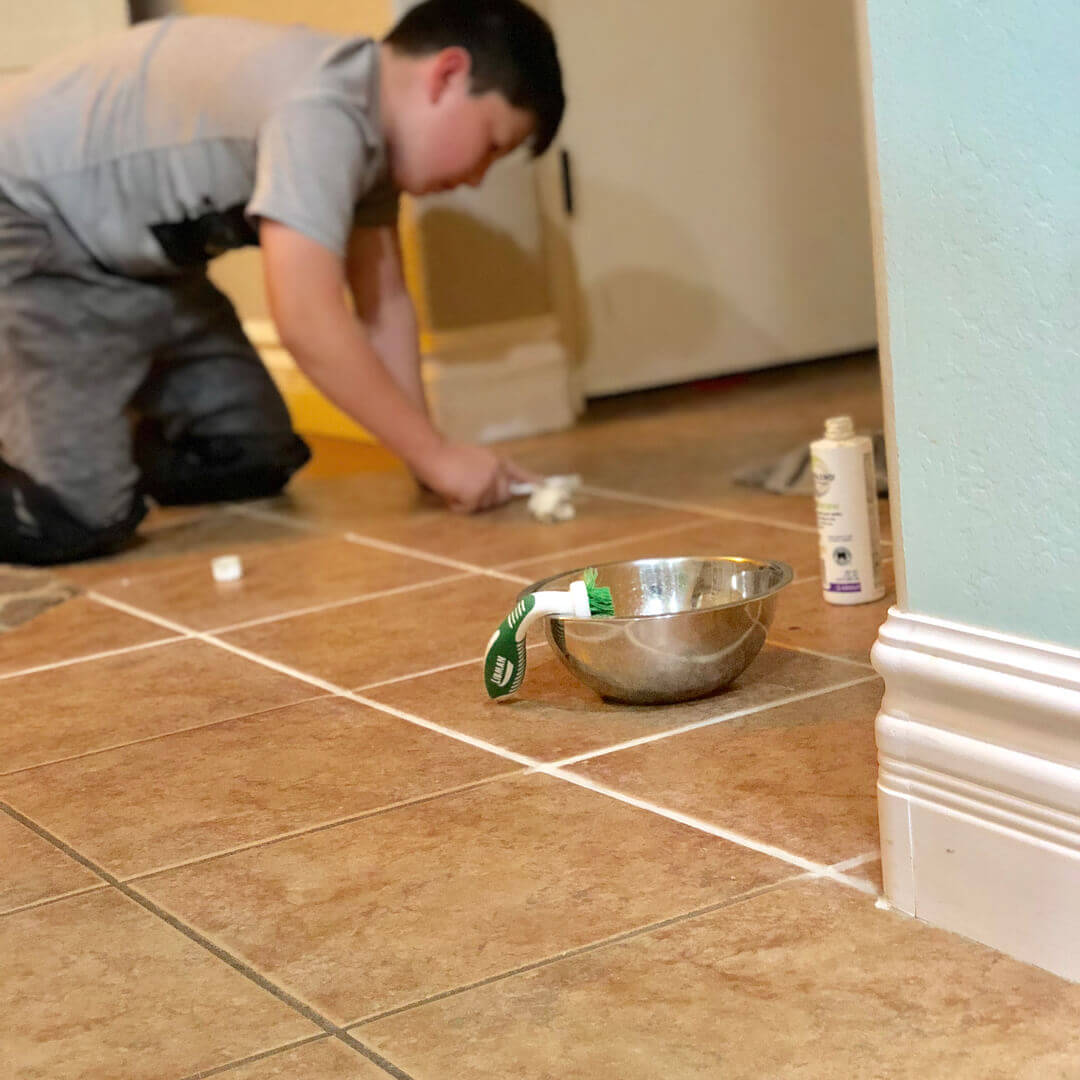

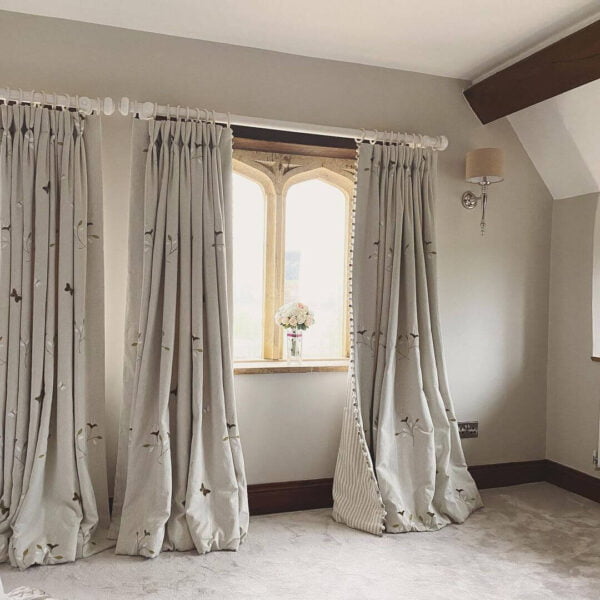
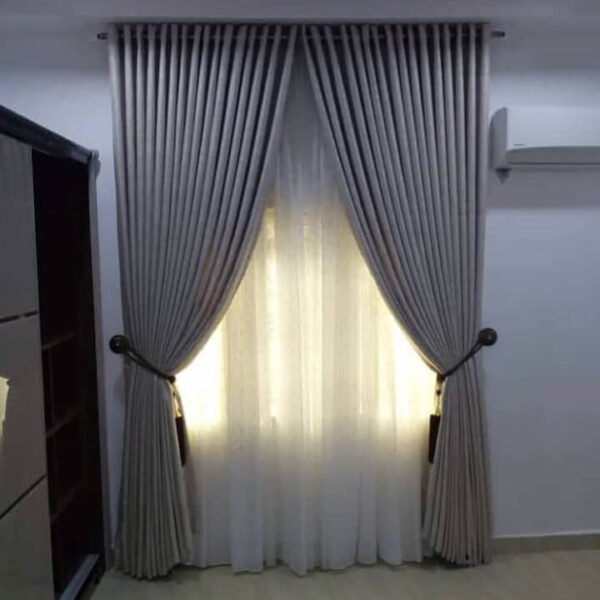
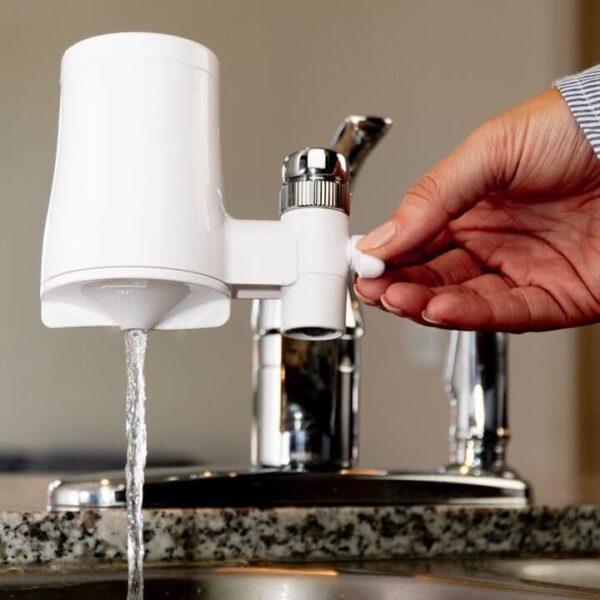


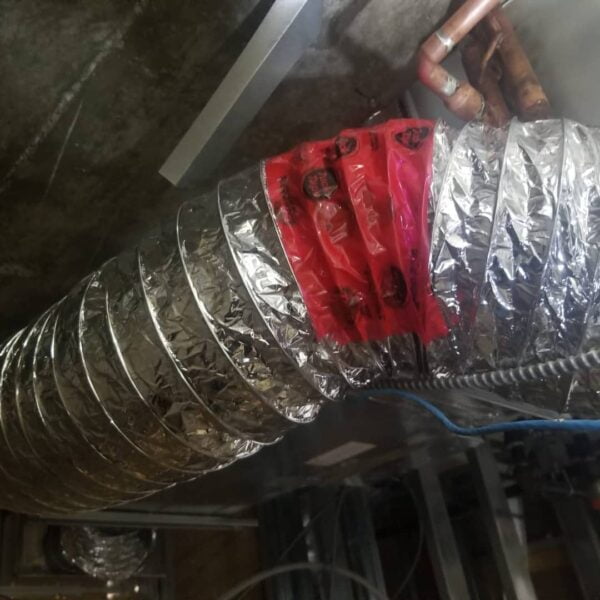

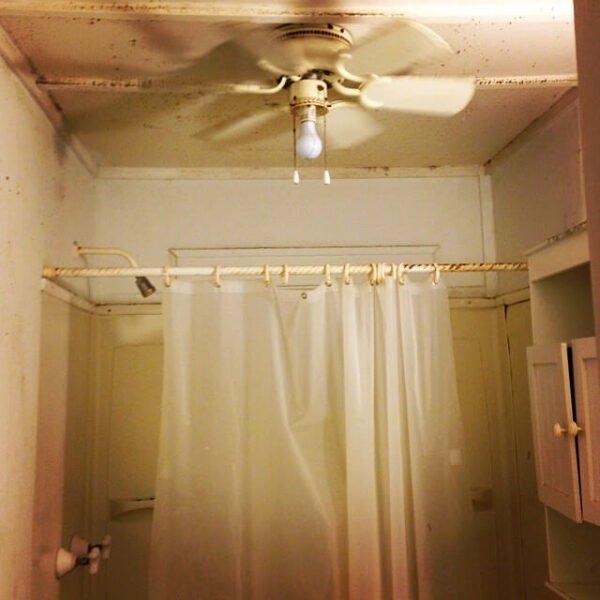
Leave a Comment